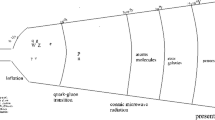Summary
To sum up the main results of this study: I have disentangled two distinct patterns of argument that Taylor runs together in his attempt to show that there is a reason or explanation for the world as a whole. The first is based on the causal dependency of things in the world, the second is based on their logical contingency. It seems to make the most sense of Taylor's discussion if we interpret him not as invoking the principle of sufficient reason at the crucial juncture, but as using these arguments to give backing to that principle by showing that it applies to the world in its totality. However, these arguments do not succeed in doing that. The first fails because it depends on a remote analogy between the world as a whole and the physical objects in the world. Concerning the second, an analysis of the logic of why-questions about the existence of things has revealed that the logical contingency of something is not a ground for thinking it has an explanation. The only promising interpretation of the principle of sufficient reason that we have found is as a causal principle pertaining to things in nature.
Similar content being viewed by others
Author information
Authors and Affiliations
Rights and permissions
About this article
Cite this article
Crawford, D.D. The cosmological argument, sufficient reason, and why-questions. Int J Philos Relig 11, 111–122 (1980). https://doi.org/10.1007/BF00136760
Issue Date:
DOI: https://doi.org/10.1007/BF00136760



